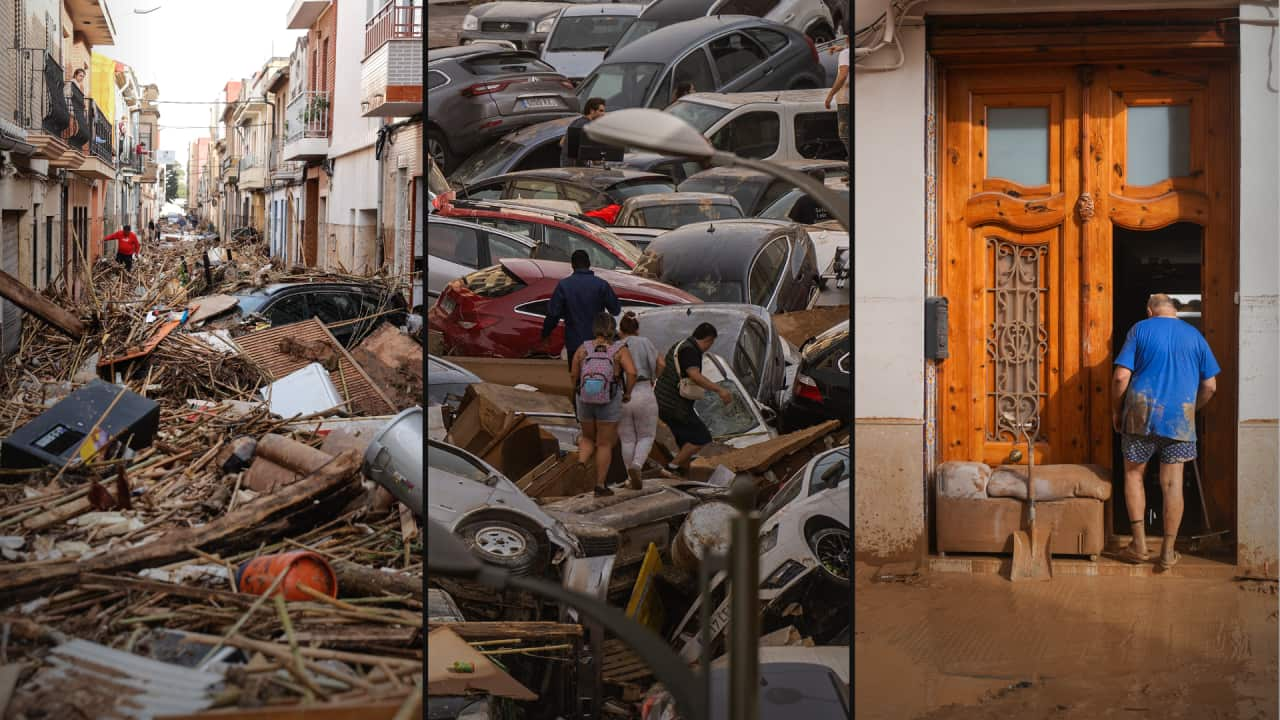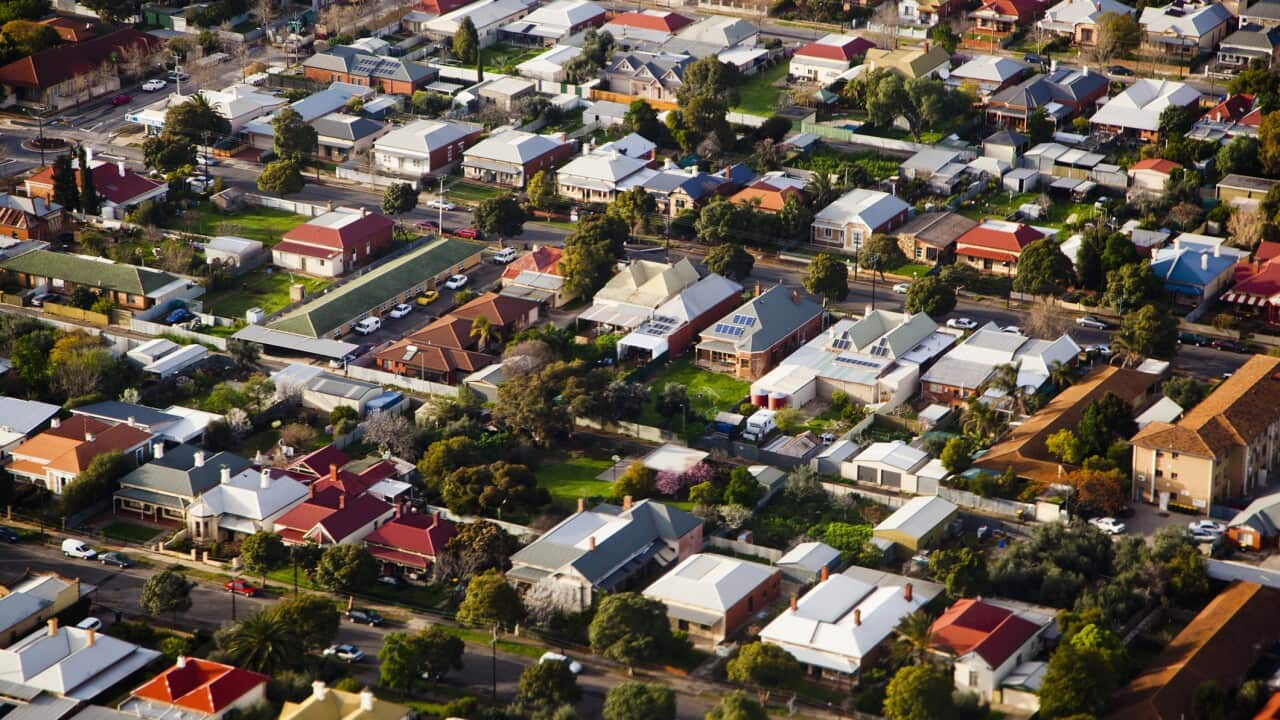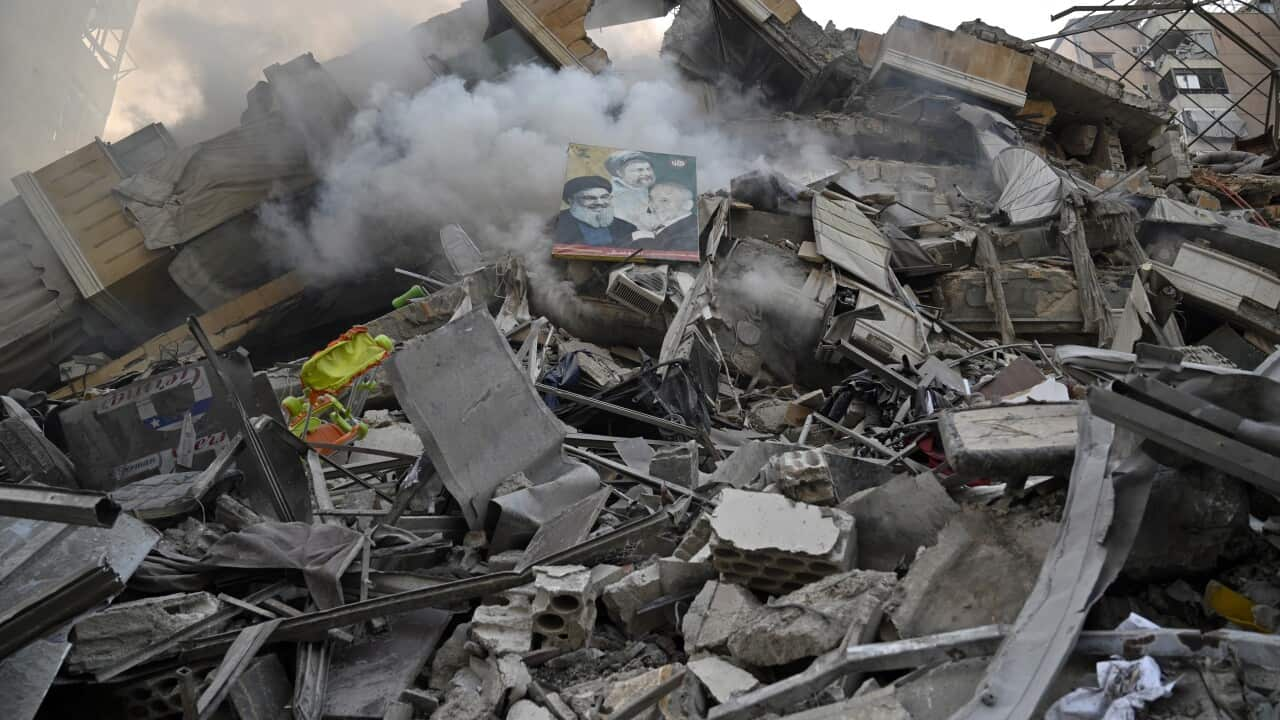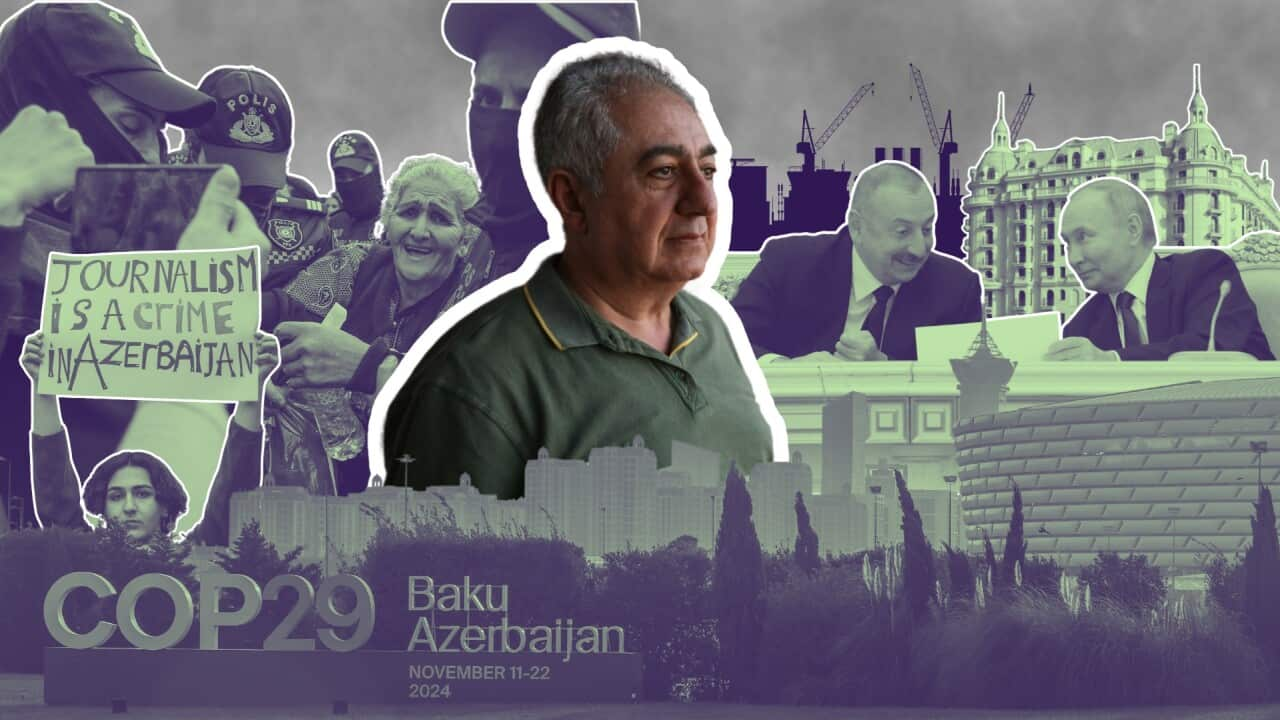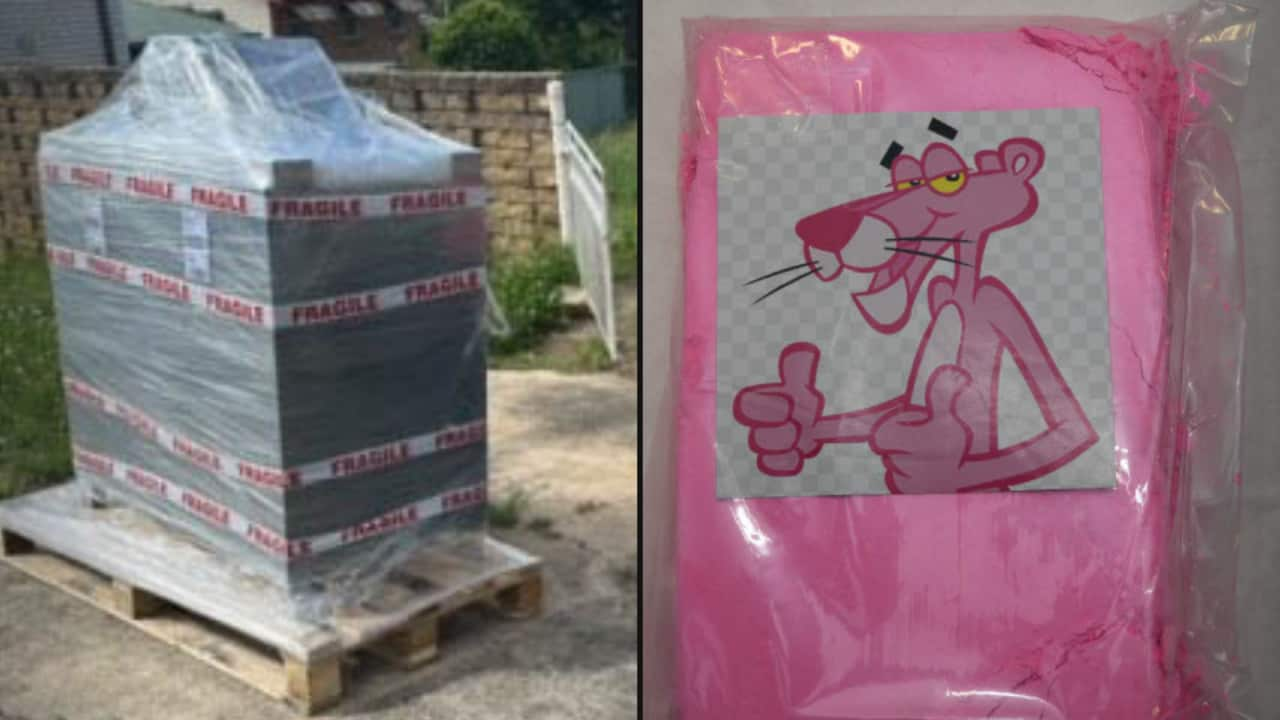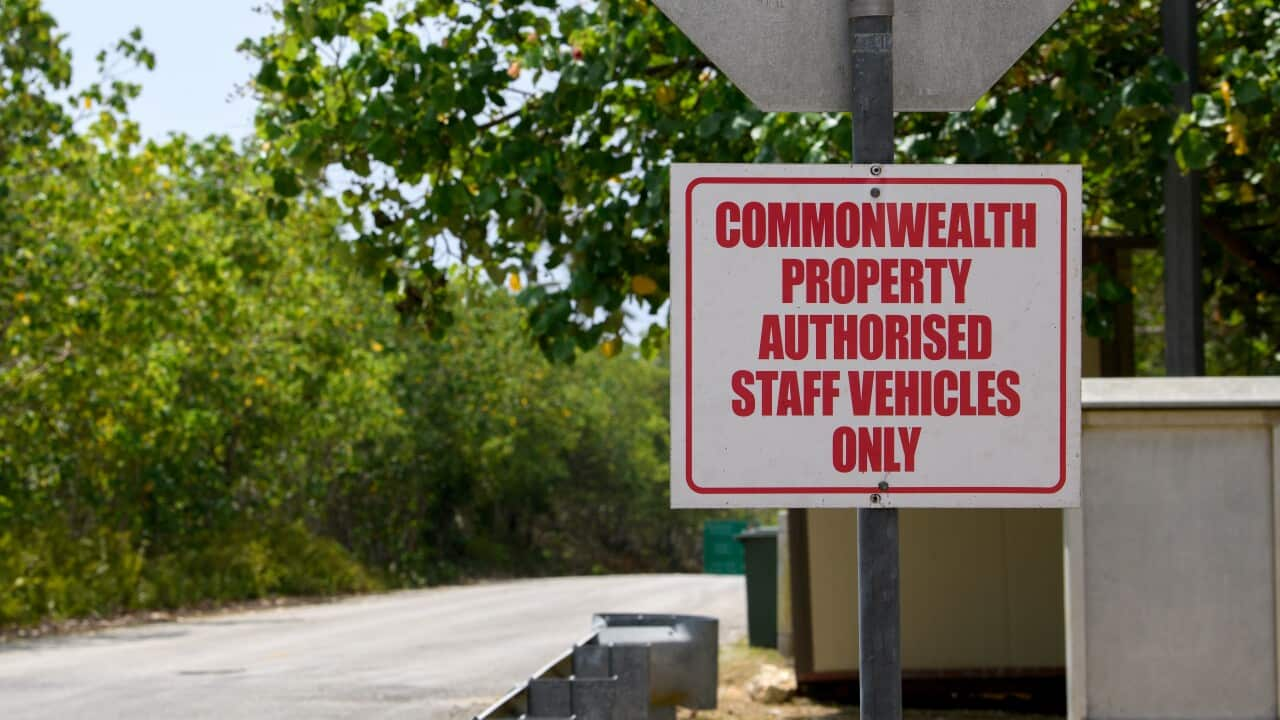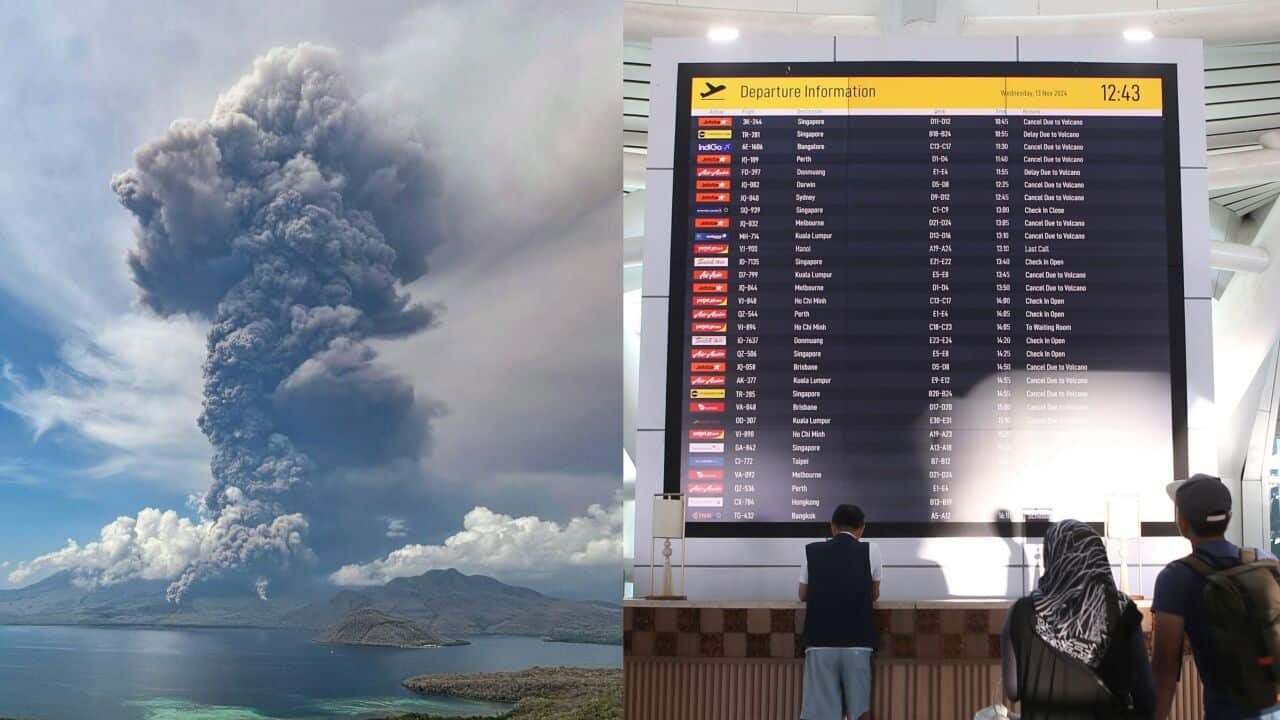Key Points
- At least 95 people have been killed following catastrophic flash flooding across Spain.
- The death toll appeared to be the worst in Europe from flooding since 2021.
- The floods were caused by a weather system in which cold and warm air meet, creating powerful rain clouds.
Rescuers expected to find more bodies following the country’s deadliest flood in more than fifty years, which launched muddy waters through towns in the eastern region of Valencia, tossed cars and wreaked transport havoc.

A resident inspects damaged vehicles piled up in Sedavi, in the province of Valencia. Source: AAP / Biel Alino/EPA
Bridges and parts of buildings from across the region were destroyed by the torrential rainfall and carried away by floodwater.
Residents in the worst-hit places described seeing people clambering onto the roofs of their cars as a churning tide of brown water gushed through the streets, uprooting trees and dragging away chunks of masonry from buildings.

Residents salvage furniture in the flood-hit municipality of Paiporta. Source: AAP / Manuel Bruque/EPA

A resident looks at a damaged bridge in the flood-hit municipality of Ribarroja del Turia, in the province of Valencia. Source: AAP / Kai Forsterling/EPA
The death toll, which includes three people in other regions, appeared to be the worst in Europe from flooding since 2021, when at least 185 people died in Germany.
It is possibly Spain’s worst in its modern history as the number of victims surpassed 87 people killed in a 1996 flood near a town in the Pyrenees mountains.

Power services have also been affected, with reports from power company i-DE claiming around 150,000 of their customers across the region had been left with no electricity. Source: AAP / Manu Fernandez/AP
Spain’s minister of regional affairs, Angel Victor Torres, told reporters the authorities were still unable to give a final number for all those still missing, suggesting the death toll was likely to rise further.
“This shows the tremendous magnitude of this tragedy,” he said.

People stand in front of their houses affected by floods in Utiel, Spain. Source: AAP / Manu Fernandez/AP
Defence minister Margarita Robles said more than 1,000 troops backed by helicopters were being deployed in the face of “an unprecedented phenomenon”.
European Commission President Ursula von der Leyen wrote on X that Europe was ready to help. “What we’re seeing in Spain is devastating,” she said.

Damaged cars and debris stacked in the middle of a train rail in the flood-hit city of Alfafar. Source: AAP / Raquel Segura/EPA

Residents walk past piled-up cars along a mud-covered street in the flood-hit municipality of Paiporta. The mayor of Paiporta, located about ten kilometres southwest of Valencia, confirmed that at least 34 people died in the municipality due to the flooding. Source: AAP / Manuel Bruque/EPA
The rain has also submerged a number of farms across Valencia, with the region producing the majority of Spain’s annual citrus fruit exports. The country is the largest provider of fresh and dried oranges worldwide, based on figures from the Observatory of Economic Complexity.
“We are cut off, you can’t reach parts of the town. The roads are all cut, bridges are cut.”

A resident walks over debris in the flood-hit municipality of Paiporta, in the province of Valencia, Spain. The total death toll of the floods appeared to be the worst in Europe from flooding since 2021, when at least 185 people died in Germany. Source: EPA / Manuel Bruque
Trains to the cities of Madrid and Barcelona were cancelled due to the flooding, and schools and other essential services were suspended in the worst-hit areas, officials said.
Power services have also been affected, with reports from power company i-DE claiming around 150,000 of their customers across the region had been left with no electricity.
Other regions of Spain also affected
There was also flooding in other parts of the country, including the southern region of Andalusia, and forecasters warned of more bad weather ahead as the storm moved in a north-east direction.

Defence minister Margarita Robles said more than 1,000 troops backed by helicopters were being deployed in the face of “an unprecedented phenomenon”. Source: Getty / Jorge Guerrero/AFP
The regional weather service in Catalonia issued a red alert for the area around Barcelona, warning of high winds and hail, while the state meteorological agency, AEMET, placed the city of Jerez in Andalusia on red alert.
Prime Minister Pedro Sánchez promised to rebuild the infrastructure that had been destroyed and said in a televised address on Wednesday: “For those who at this moment are still looking for their loved ones, the whole of Spain weeps with you.”

The floods were caused by a destructive weather system in which cold and warm air meet and produce powerful rain clouds. Source: AAP / Manuel Bruque/EPA
What caused the floods?
The floods were caused by a destructive weather system in which cold and warm air meet and produce powerful rain clouds, a pattern believed to be growing more frequent due to climate change.

Source: Getty / EPA/Biel Alino
When cold air blows over warm Mediterranean waters, it causes hotter air to rise quickly and form dense, water-laden clouds that can remain over the same area for many hours, raising their destructive potential. The event sometimes provokes large hail storms and tornadoes as seen this week, meteorologists say.
Eastern and southern Spain are particularly susceptible to the phenomenon due to its position between the Atlantic Ocean and the Mediterranean Sea.

A man cleans his house affected by floods in Utiel, Spain. Source: AAP / Manu Fernandez/AP
While experts say it will take time to analyse all the data to determine if this particular event was caused by climate change, most agree that an increase in the temperature of the Mediterranean and warmer and more humid atmospheric conditions contribute to producing more frequent extreme episodes.
With additional reporting by the Agence France-Presse.

